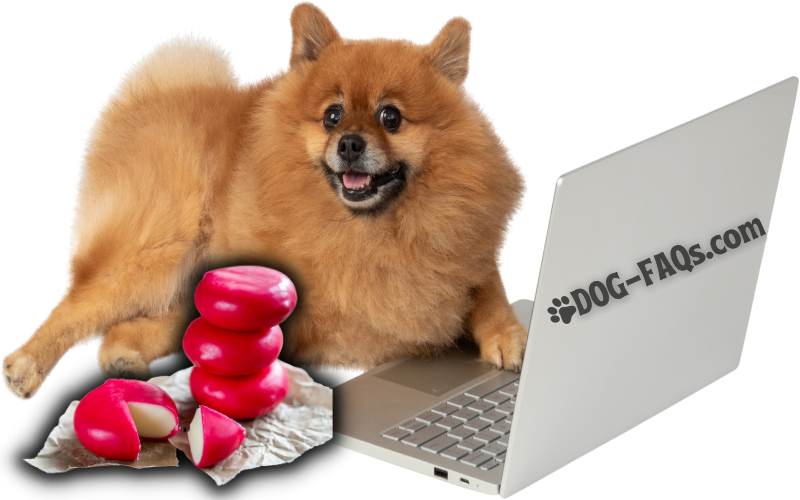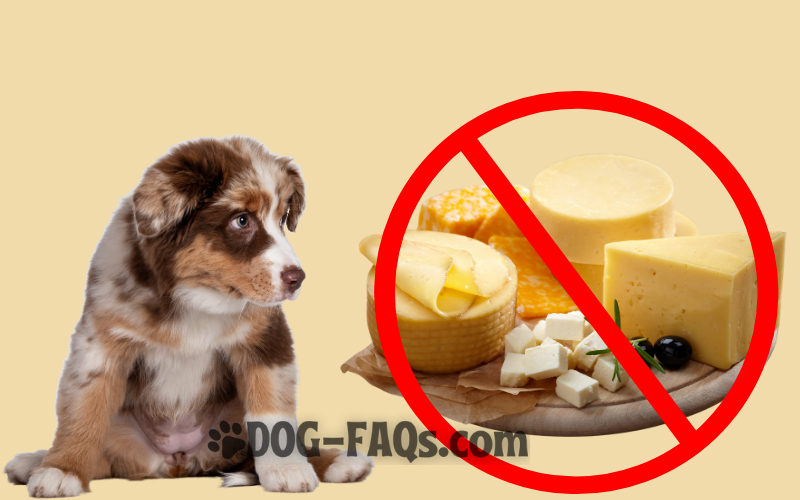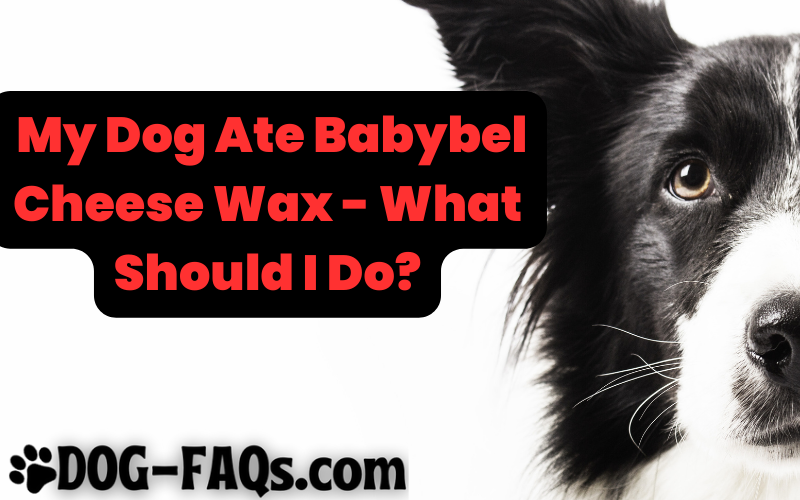Have you ever wondered if dogs can eat Babybel cheese? It’s a popular snack, and many of us have shared it with our furry friends. But is it safe for them to consume? In this article, we’ll explore the health benefits and risks of feeding your dog Babybel cheese.
We all want to provide the best care possible for our four-legged family members. Ensuring they get enough nutrition while avoiding potential health hazards is essential. While there are benefits to feeding your pup Babybel cheese, there may also be some risks. We’ll look at both sides of the equation so you can make informed decisions when treating your pet.
If you’re considering giving your pup a taste of Babybel cheese, read on! This article will give you everything you need to know about how healthy or unhealthy this snack might be for your canine companion.
What Type Of Cheese Is Babybel?
Babybel is a semi-hard Dutch cheese made from pasteurized cow’s milk. It has been around since 1952 when it was first developed by the Fromageries Bel group in France. The most common variety of Babybel is Edam cheese – also known as “red wax” because of its distinctive red coating.
This semi-hard cheese is mild buttery in flavor, making it an ideal snack for kids and adults. It can be enjoyed independently or used to enhance dishes such as salads, sandwiches, and casseroles. But what about giving this tasty treat to our four-legged friends? Can dogs eat Babybel cheese safely? Let’s look at the health benefits and risks associated with feeding your pup some Babybel.
Can Dogs Eat Babybel Cheese?
Can dogs eat Babybel cheese? The answer is both yes and no. Though some pet owners may be tempted to let their pup enjoy this tasty treat, it’s important to understand the potential risks of feeding your dog Babybel cheese.
Babybel cheese is made from pasteurized cows’ milk and thus contains a number of nutrients that could benefit your furry friend in moderation. However, too much dairy can cause digestion issues and obesity if fed as a regular snack or meal replacement. Additionally, many types of Babybel cheese contain added ingredients like garlic powder which can be toxic to pets if ingested in large quantities. As such, it’s best to consult your veterinarian before feeding your dog any processed cheese.
It’s clear that while Babybel cheese may seem like an ideal healthy snack for dogs, you must consider certain factors before offering it up as part of their diet. If you do decide to try giving them a little bit as an occasional treat, make sure it’s done so responsibly under the guidance of your vet.

Is Babybel Cheese Good For Dogs?
Unfortunately, the answer to this question is no. Babybel cheese contains a fully refined paraffin wax which can be hazardous for your pup if ingested. It also has too much salt and fat content that’s unsuitable for a dog’s diet. Eating babybel cheese or its wax could cause an obstruction in their digestive system as well. So it’s best to avoid giving these snacks to your pet altogether.
At first glance, you may think that since dogs eat almost anything, they will be fine with eating babybel cheese or its wax coating. However, dogs should never consume either due to potential health complications. The most serious issue would be indigestion caused by the high-fat content found in the snack. This can lead to vomiting and unpleasant symptoms such as diarrhea and abdominal pain. In addition, consuming any amount of the paraffin wax on the outside of Babybel cheese can cause a blockage in their intestines – potentially life-threatening!

Is Babybel Cheese Bad For Dogs?
It’s true that giving dogs Babybel cheese isn’t a good idea. Dogs are lactose intolerant and can experience severe gastrointestinal distress if they consume dairy products, including Babybel cheese. This is due to the high level of lactose in the cheese which their body cannot break down properly. Not only can this lead to vomiting or diarrhea, but it could also cause more serious health problems for your pup, such as pancreatitis. While some owners may think that small amounts of cheese would be fine for their dogs, it’s best not to take any chances with their health and avoid feeding them Babybel cheese altogether.
Additionally, when considering what you feed your canine companion, keep in mind that Babybel cheese offers little nutritional value compared to other foods like lean meats, vegetables, and fruits. These options provide better sources of protein and fiber while also containing essential vitamins and minerals that will benefit your dog’s diet. Allowing your pup to eat babybel cheese can quickly fill up his stomach without providing ample nutrition, so it’s always best to choose healthier alternatives!
Health Risks Of Dogs Eating Babybel Cheese
Though Babybel cheese is tasty, there are health risks associated with dogs eating it. If a dog ate too much of this cheese, it could experience digestive upset and diarrhea due to its high-fat content. Additionally, some pups may have an allergy or severe lactose intolerance to dairy products such as Babybel cheese, resulting in vomiting and abdominal pain. The salt content of the cheese can also cause weight gain if consumed regularly by your pup.
When considering what type of food to feed your dog, always consider their needs. Dogs should avoid all kinds of cheese, including Babybel because even small amounts can lead to serious health issues.
What Other Types Of Cheese Should Dogs Not Eat?
Dogs should avoid all kinds of cheese, not just Babybel. Cheese wax can be toxic to dogs if ingested in large quantities and may cause harm. Furthermore, some types of cheese are high in fat and can lead to health problems like obesity or pancreatitis. Additionally, some cheeses contain lactose which can upset a dog’s stomach if they have severe lactose intolerance. As such, it is important for pet owners to understand the different types of cheese as well as their potential risks before feeding any type of cheese to their beloved pooch.
Pet owners must also check labels on pre-packaged products that might include cheese ingredients before feeding them to their canine companions. Many processed foods intended for human consumption could contain small amounts of cheese which may not be suitable for dogs with special dietary needs. Therefore, pet owners must be extra cautious when selecting treats and food items from grocery stores or online retailers.
Can babybel cheese upset a dog’s stomach? Yes – due to its high amount of fat, it has been known to cause digestive issues in certain breeds that cannot handle dairy products well. Therefore, it is best to consult a veterinarian before deciding whether Babybel or any other kind of cheese is an appropriate treat choice for your pup!
Can Babybel Cheese Upset A Dog’s Stomach?
Yes, Babybel cheese can upset a dog’s stomach if they eat it. The wax packaging that the cheese comes in is not meant to be eaten by pets and should never be given as a treat. If your pet accidentally consumes some of the red wax coating on the outside of the cheese, this could cause digestive issues.
The actual cheese itself isn’t toxic or poisonous to dogs, but its high-fat content could give them an upset stomach if their diet doesn’t usually include dairy products. Cheese also contains lactose, which many dogs may have difficulty digesting – especially puppies and older dogs with compromised digestion systems.
It’s important to note that even though Babybel cheeses are small enough for most dogs to swallow whole, there is still a potential danger of choking if they attempt to chew through the hard wax covering without breaking it up first.
Babybel Wax Coating: Can It Cause Choking In Dogs?
Regarding Babybel cheese, the wax coating is a concern for dog owners. Whether wax packaging can cause choking in dogs if consumed has been on many pet owners’ minds. Unfortunately, when a dog consumes Babybel cheese, it may be at risk of choking due to the wax coating.
The wax used in the packaging of Babybel cheese is designed to help preserve and protect the product during shipping and storage. However, once eaten, this same wax may not break down easily within a canine’s digestive system. As such, there are risks associated with feeding your pup Babybel cheese that should be considered before doing so.
It’s important to note that any foreign object left unchewed could become lodged in their throat or intestine, leading to serious health problems. Therefore, it is best to avoid giving your pet Babybel cheese altogether as an alternative solution for providing them with healthy nutrients like calcium and phosphorus. It might be safer and more beneficial overall.
Alternatives To Feeding Babybel Cheese (And Cheese In General) To Your Dog
When it comes to feeding your dog Babybel cheese, many pet owners may wonder if this is a safe and healthy option. The short answer is that while dogs love cheese, most types are not the best choice for their diets due to their high-fat content and potential health risks.
The good news is there are plenty of alternative options for treating your pup with something special without risking their health. For example, you can give them some plain cooked chicken or turkey as treats – both are low in fat but packed with protein!
You could also try offering frozen blueberries or even bits of apple slices (make sure they’re cut into small pieces). Other great alternatives include carrots, pumpkin puree, sweet potatoes, and bananas – all yummy and nutritious options for any four-legged friend!
Pancreatitis And Other Symptoms: What Should I Do If My Dog Eats Too Much Babybel Cheese?
Babybel cheese can be a tasty treat for your pup, but there are some risks and health benefits associated with this snack. Babybel wax is not poisonous to dogs but may cause intestinal blockage if eaten in great quantities. The cheese contains lactose, so it’s important to know whether or not your dog is lactose intolerant before giving them any. If they aren’t, then Babybel cheese can make a nutritious snack for them.
However, if your dog has eaten too much of the cheese, you should look out for symptoms
such as abdominal pain and vomiting which could be signs of pancreatitis. If these symptoms arise, contact your local veterinarian immediately who will likely put your pet on fluids and monitor their progress. It’s also possible that the wax from the cheese caused an intestinal blockage – in this case, surgery would be needed to remove it. In light of this situation, try to avoid feeding your pup too many Babybels simultaneously!
Symptoms Of Intestinal Blockage In Dogs Caused By Eating Babybel Wax
Our furry friends are known to eat almost anything that tastes good, but it doesn’t mean they should. Eating Babybel cheese can cause a blockage in your pup’s intestines and even lead to serious health problems if left untreated. Symptoms of an intestinal blockage caused by eating the wax from Babybel cheese include vomiting or weight loss, diarrhea, lack of appetite, abdominal pain or discomfort, and a bloated stomach. If you suspect your dog has eaten any part of this snack food, watch for these signs and seek medical attention immediately.
In addition to the risk of a blockage forming in their bodies, dogs who ingest Babybel cheese may suffer from other adverse effects, such as digestive upset due to the cheese wax coating. This wax is indigestible and can be difficult for some pups’ tummies to handle which could result in nausea or an upset stomach. Furthermore, Babybel cheeses tend to have more salt than other types of cheese, so consuming too much of it could also lead to dehydration or electrolyte imbalances in your pet. Unprocessed foods like fresh vegetables are always better when feeding our canine companions snacks!
3 Dangers Of Dogs Eating Babybel Cheese, Lactose Intolerance, Salt, Denatured Food
Dogs can eat babybel cheese in small amounts, but it is important to watch out for potential health risks. Babybel cheese has a high salt concentration and could cause dehydration or gastrointestinal upset if fed too much. It also contains lactose which all dogs may not tolerate because many are lactose intolerant. Lastly, denatured proteins found in some cheeses may lead to adverse reactions in certain breeds.
It is best to speak with your vet before feeding your pup any cheese, as they can provide customized advice based on their size, lifestyle, and overall health condition. In general, only feed babybel cheese in moderation. If you do choose to give your pup this popular snack make sure there’s plenty of water available and look out for signs of distress such as vomiting, diarrhea, lack of appetite, etc. so that you can take action quickly if necessary. If you ever notice any concerning symptoms after feeding babybel cheese contact your vet immediately.
Though babybel cheese can offer some nutritional benefits when fed sparingly, it’s always wise to familiarize yourself with the dangers associated with feeding it regularly. That way, you can ensure that both you and your furry friend get the most out of snacking together without putting them at risk.
Can Babybel Cheese Upset A Dog’S Stomach?
The answer to whether babybel cheese can upset a dog’s stomach depends on how much it has been ingested. Dogs can eat small amounts of Babybel cheese without any issues, but too much could result in an upset stomach. If your dog accidentally ate some, monitoring them for signs like vomiting or diarrhea is important. They may experience abdominal discomfort and even constipation as well.
It is also worth noting that there are benefits to dogs eating babybel cheese. The calcium in this cheese type can help strengthen bones and teeth, especially if you feed your pup a homemade diet with limited dairy products. In addition, the protein content helps provide essential amino acids needed for healthy growth and muscle development. All these components make Babybel cheese a great treat for dogs when given in moderation.
Can Puppies Eat Babybel Cheese?
No, puppies should not eat Babybel cheese. Although humans popularly enjoy this type of mini-round cream cheese due to its tangy flavor and convenient size, it can be quite the opposite for dogs. Here are some reasons why:
- Babybel cheese contains more fat than regular cheese, making it harder for puppies to digest, which can hurt their stomachs.
- The high salt content of the product may lead to dehydration or over-consumption, which could be dangerous for a puppy’s health.
- It also has an acidic taste that most young dogs do not enjoy, so forcing them to eat it could result in an upset tummy or even vomiting.
- Finally, since cheese is often used as a treat or reward for training, giving your pup too much of it could contribute to weight gain and other unhealthy habits.
It’s best to avoid feeding puppies dairy products such as Babybel cheese. Instead, when rewarding your pet’s good behavior, you should opt for vet-approved dry dog food or snacks specifically designed with canine nutrition in mind.
Frequently Asked Questions
How Much Babybel Cheese Is Safe For A Dog To Eat?
Babybel cheese is a snack you may have wondered about when it comes to feeding your dog. It’s natural to wonder how much of this tasty treat can be safely given as a reward or occasional indulgence.
Several factors are at play when deciding just how much Babybel cheese should be fed to your pup. Firstly, every breed and size of dog will have different dietary requirements and nutritional needs. In general, though, small amounts of cheese can be an appropriate snack for most dogs. A few pieces of the mini-sized version once in a while is unlikely to cause any harm. However, if you’re giving them regular treats of the full-size variety then consider moderating the amount so that their diet is balanced with less sugar or fat from other sources.
It’s important to remember that all snacks should only make up 10% of your pet’s daily caloric intake – including Babybel cheese! If you decide to feed your furry friend some cheesy goodness now and again, always keep an eye on them afterward for signs of digestive upset such as vomiting or diarrhea, which could indicate they’ve had too much dairy for their system to cope with comfortably, but let’s be honest, Babybel cheese and any cheese is not safe for dogs.
Are There Any Other Types Of Cheese That Are Safe For Dogs To Eat?
Cheese is often a controversial topic when it comes to feeding your dog. While many people believe that dogs should not eat cheese at all, some types of cheese can benefit their diet in moderation.
So, if you’re wondering whether other cheeses besides Babybel are safe for your pup, the answer is yes, there are some kinds of cheese that are less harmful than others, but no kind of cheese has only beneficial properties for dogs.
Here’s what you need to know about four of the best cheese options for Fidos:
- Cottage Cheese – Rich in protein and calcium, cottage cheese is an excellent snack or meal supplement. Plus, most dogs find its taste very appealing.
- American Cheese – Low-fat but still packed with flavor, American cheese slices are perfect as occasional treats when cut into small pieces and given sparingly.
- Swiss Cheese – With its sweet, nutty flavor and high levels of Vitamin B12 and phosphorus content, Swiss cheese offers plenty of nutritional value.
- Mozzarella Cheese – Full of energy-boosting proteins and vitamins A & D, mozzarella is another great option for pups who like cheesy snacks occasionally!
While no type of cheese should ever replace a healthy balanced diet for your dog, these kinds can be a less unhealthy version of cheese. When a dog eats babybel cheese, only a small amount can be digested, if any. Many dogs appear to have a dairy allergy, which is something to consider.
Just remember to offer them only firm cheese as a treat, in moderation, no more than once per week. Too much dairy can cause digestive issues such as gas and diarrhea, and dairy products can generally hurt dogs’ gastrointestinal systems. Dogs don’t have to eat great quantities to do so—always check with your veterinarian before making any major changes to your pet’s diet plan!

Are There Any Health Benefits For Dogs Eating Babybel Cheese?
No, there are no health benefits if dogs eat Babybel cheese. Dogs with lactose intolerance should not eat Babybel cheese as it contains lactose. Also, if a dog eats Babybel wax, it will probably cause a gastrointestinal blockage if it is not digested properly. Generally, it is best to avoid giving your dog cheese, as it is high in fat and salt.
In addition to the lack of health benefits for dogs, cheese can be harmful if consumed in large amounts. Dogs who eat too much cheese can become obese, leading to several health problems, such as diabetes, heart disease, and joint problems. Furthermore, cheese is high in sodium, which can cause dehydration and electrolyte imbalances in dogs. Because of these risks, avoiding feeding your dog Babybel cheese is best.
Why Do Dogs Love Cheese While They Shouldn’t Eat Cheese?
Dogs eat cheese so much due to its salty and savory flavor, making it an irresistible snack for them. However, while small amounts of cheese can make a tasty snack for your pup (but an unhealthy snack), it is not recommended for your dog eating cheese often. When dogs eat Babybel cheese, for example, a cheese snack high in fat and salt, it can cause digestive issues if consumed in large amounts.
Additionally, cheese can be high in saturated fat and calories, leading to weight gain if consumed regularly. Therefore, it is best to give cheese as an occasional treat, rather than a regular snack.
What Are The Signs Of Pancreatitis In Dogs?
When it comes to our four-legged friends, understanding the signs of pancreatitis in dogs is crucial. Pancreatitis can be a serious health issue for canines and requires quick action when symptoms appear. Understanding how to recognize these warning signs could make all the difference in keeping your dog healthy and happy.
Pancreatitis occurs when inflammation affects the pancreas, producing digestive enzymes important for digestion. Symptoms of canine pancreatitis include abdominal pain, vomiting, decreased appetite, diarrhea, dehydration, lethargy or an overall lack of energy, weight loss, and fever. It’s essential to take your pup to the vet as soon as possible if you notice any of these symptoms since acute pancreatitis can lead to life-threatening complications like organ failure or sepsis if left untreated.
Early diagnosis is key in successfully treating this condition, so pay close attention – even subtle changes may indicate something more serious with your pup’s health. Your veterinarian will likely recommend blood tests or imaging tests such as x-rays or ultrasounds to confirm a diagnosis before recommending appropriate treatment options. Sometimes, hospitalization might be necessary depending on severity, but many mild cases can be managed at home through dietary modifications and medications prescribed by your vet.

My Dog Ate Babybel Cheese Wax! What Should I Do?
Many people ask, can babybel wax hurt dogs? If your dog has accidentally eaten Babybel cheese wax, you should monitor your dog for any signs of distress, such as vomiting, diarrhea, or lack of appetite.
You should contact your veterinarian for further advice if your dog shows any of these signs. If your dog does not show any of these signs, it is generally safe to assume that the wax packaging is not a cause for concern.
Cheese, like Babybel, has its own wax packaging, which isn’t toxic for dogs, but if a dog swallows a large amount of wax, it may cause constipation or intestinal obstruction.
Conclusion
So, can dogs eat babybel cheese? No, I wouldn’t give it to my dog. It is important to consider the health benefits and risks of feeding your dog Babybel cheese. While there are some potential health benefits, such as providing a source of protein and calcium, it’s best to avoid feeding any cheese to your dog since you can feed him a variety of foods that can give protein and calcium without any detrimental properties.
Babybel cheese can be safe for dogs if given in tiny amounts; however, larger portions may cause gastrointestinal upset or pancreatitis.
Additionally, puppies should not eat Babybel cheese due to their sensitive digestive systems. If you decide to give your pup this tasty treat, make sure that they don’t overindulge! Ultimately, it’s up to you as a pet parent to do what’s best for your furry friend – so use good judgment when deciding whether or not to let them enjoy a bit of Babybel cheese now and then.
Read Before you Feed!
Can Dogs Eat Cornstarch? Everything You Need To Know In 2023!
Can dogs eat grits? The truth will surprise you! 2023 Full Beginners Guide
Can Dogs Eat Pop Tarts? 15+ Potential Risks If You Feed Them!
Can Dogs Eat Nectarines? 20+ Fruitful FAQs Answered!
Can Dogs Eat Mashed Potatoes? 15+ Free Tips!

